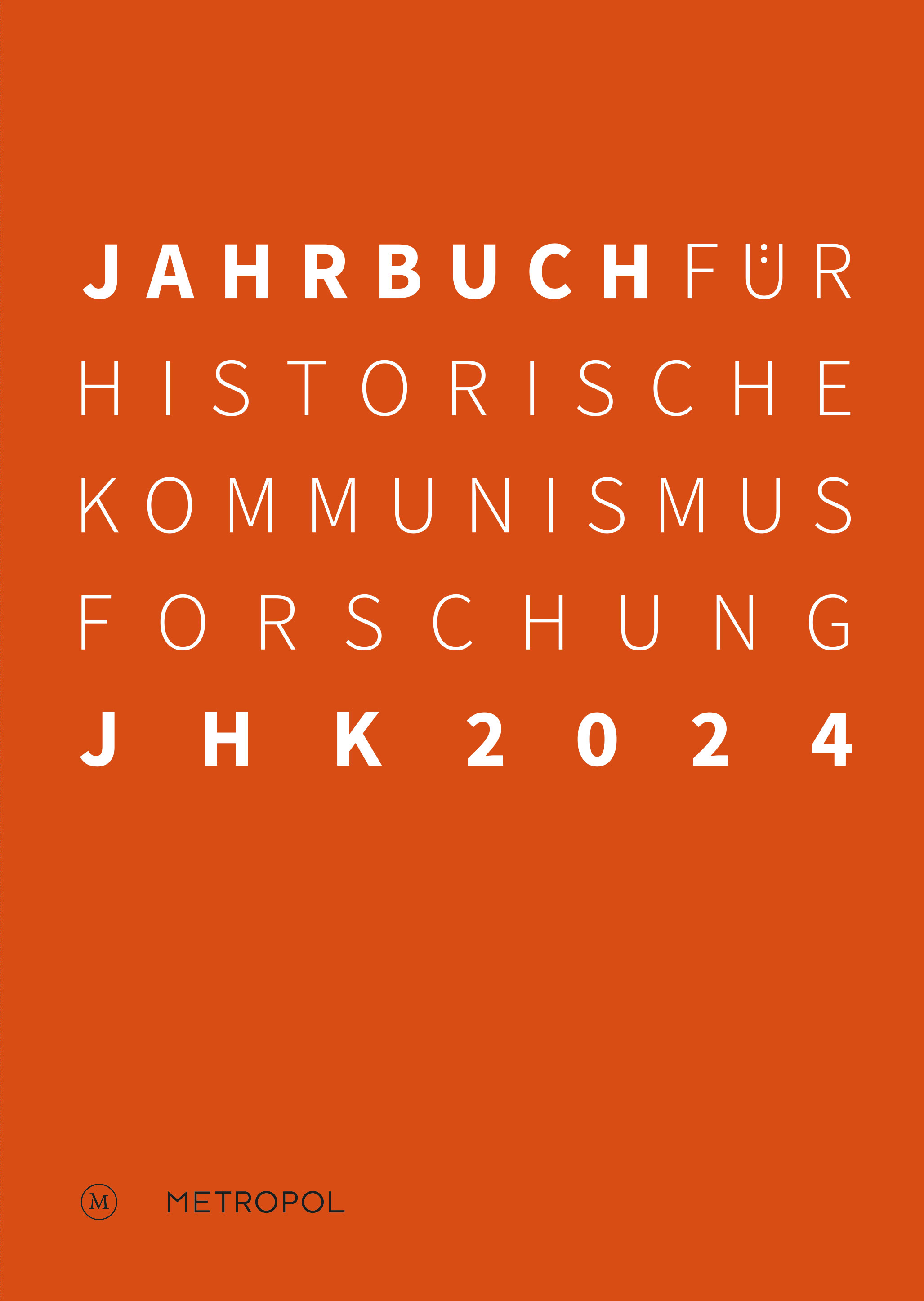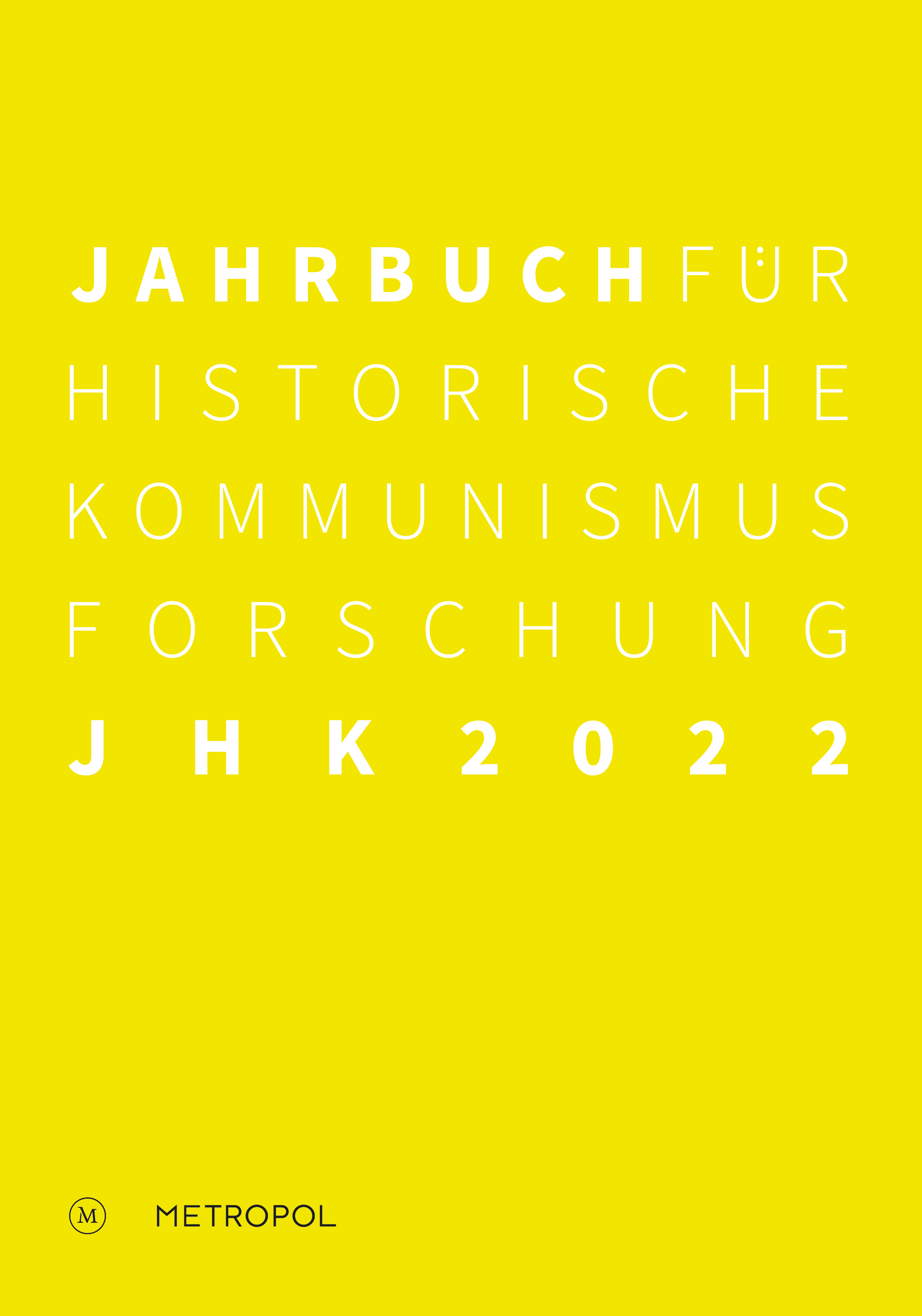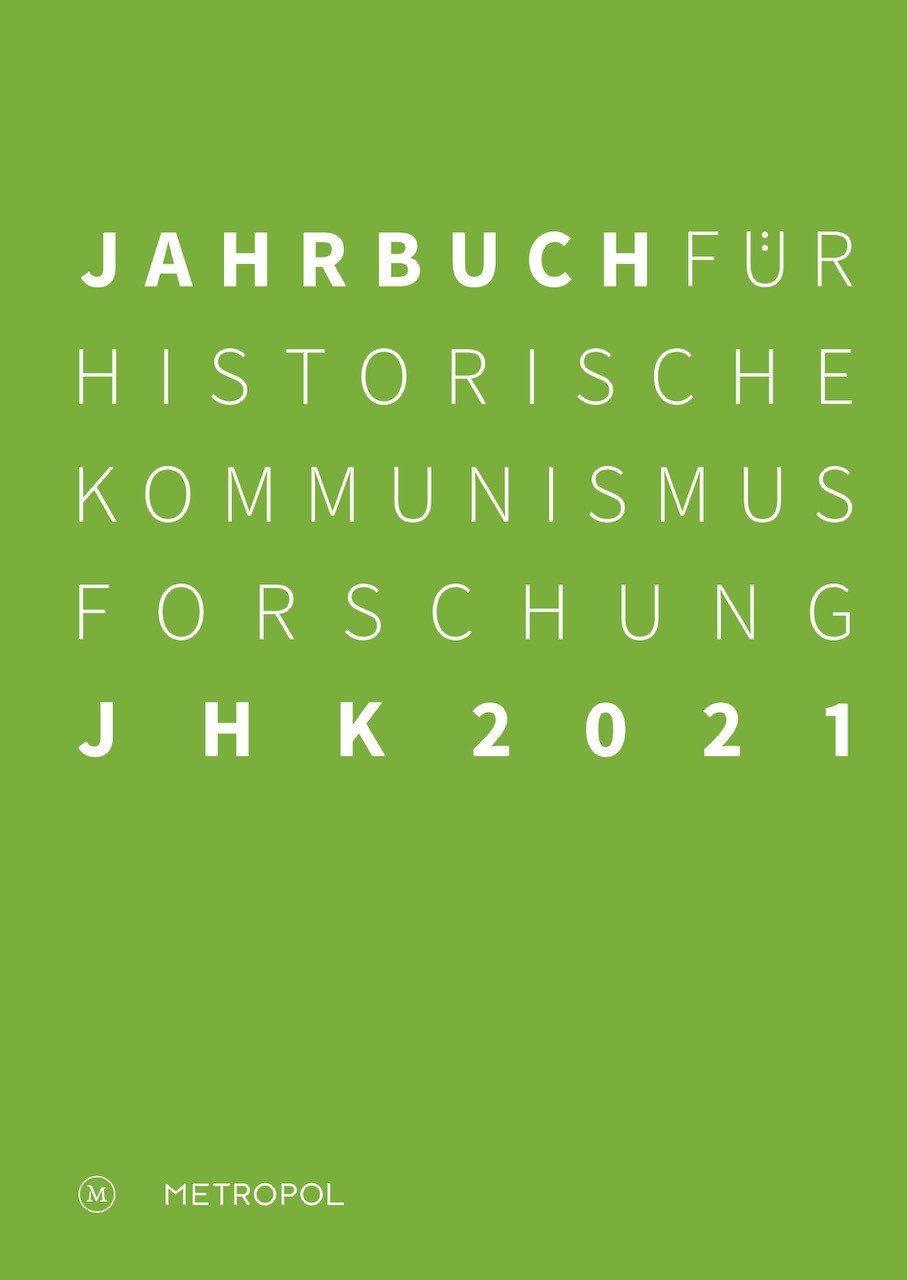Angela Schwarz: »Tor in eine komplett neue Welt«? Computerspiele(n) in der DDR – eine Annäherung, in: Jahrbuch für Historische Kommunismusforschung 2021. Berlin: Metropol Verlag, pp. 227-244.
Abstract
This essay deals with the phenomenon of video gaming in the GDR in the 1980s. Exploring case studies for three main areas of this activity – the state, gamers, and the games themselves – it highlights significant aspects of gaming and the insights this holds for a social and cultural history of life under state socialism. The authorities, state agencies, and the SED wanted to promote video gaming and instrumentalize its creative potential as part of a modernizing strategy of the socialist state, while at the same time trying to control it. The discrepancies between the intended control and what could actually be monitored were more marked than in other fields. Gamers were a highly heterogeneous group with a wide spectrum of motives, ranging from simple lovers of the game or gaming to technically versed crackers and hackers who thought of themselves as an identifiable subculture. In the GDR too, video gaming went well beyond young male nerds. The games themselves and their production and dissemination can be seen as (consumer) goods in a complex field of creativity, exchange, and bartering on the part of users – even between East and West Germany amid the entry of Western-produced video games – and state initiatives in satisfying and controlling this new need.
Über die Autorin
Angela Schwarz, Prof. Dr. phil., geb. 1962 in Dinslaken. 1981–1987 Studium der Anglistik, Geschichte und Politikwissenschaft, 1991 Promotion, 1998 Habilitation. Seit 2006 Inhaberin des Lehrstuhls für Neuere und Neueste Geschichte an der Universität Siegen. Veröffentlichungen u. a.: »Quarry – Playground – Brand: Popular History in Videogames«, in: Martin Lorber/Felix Zimmermann (Hg.): History in Games: Contingencies of an Authentic Past, Bielefeld 2020, S. 25–45; »Geschichte im Computerspiel: Ein ›interaktives Geschichtsbuch‹ zum Spielen, Erzählen, Lernen?«, in: Vadim Oswalt/Hans-Jürgen Pandel (Hg.): Handbuch Geschichtskultur, Frankfurt a. M. 2020, S. 561–608; Mithg.: Reisen in die Vergangenheit. Geschichtstourismus im 19. und 20. Jahrhundert, Wien/Köln/Weimar 2019; Hg.: Streitfall Evolution. Eine Kulturgeschichte, Köln/Weimar/Wien 2017; »›Niedzwiedzie, które jezdza na rowerach jednokołowych‹? Historia i jej funkcje w grach komputerowych o XX-wiecznych dziejach Europy Srodkowo-Wschodniej«, in: Miloš Rezník u. a. (Hg.): Historia w kulturze ponowoczesnej. Koncepcje – metody – perspektywy badawcze, Kraków 2017, S. 165–190; Hg.: »Wollten Sie auch immer schon einmal pestverseuchte Kühe auf Ihre Gegner werfen?« Eine fachwissenschaftliche Annäherung an Geschichte im Computerspiel, 2., erw. und überarb. Aufl. Münster 2012.



